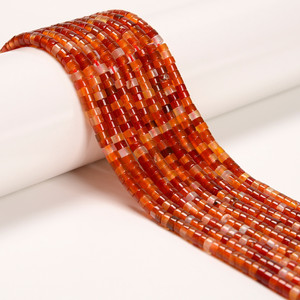
Aventurine, Green, Quartz, Heated, Heishi, One 4x2mm Strand
Aventurine, Green, Quartz, Heated, Heishi, 4x2mm
This price is for one strands 15 to 16 inches long
4x2mm strands have 145 to 150 pieces
Aventurine is a form of quartz which is a hard, crystalline mineral composed of silicon and oxygen atoms and is the second most abundant mineral in Earth's continental crust, behind Feldspar. Aventurine is characterized by its translucency and the presence of platy mineral inclusions that give a shimmering, reflective or glistening effect termed aventurescence. The most common color of aventurine is green, but it may also be orange, brown, yellow, blue, or grey. Aventurine’s most common inclusion is fuchsite, a green chromium-rich mica. Flakes of lepidolite mica can impart a pink, red or purple color. Hematite can produce pink, orange, red, and brown aventurine. Muscovite can produce gray, yellowish or silvery aventurine.
Small amounts of aventurine have been found in many parts of the world. India is by far the most important commercial producer of aventurine. Brazil is the second-place producer. South Africa, Russia, Spain, Austria, and Tanzania produce Aventurine.
Hardness 6.5
Heating is a very common form of enhancement and is used to affect desired alterations of color and/or clarity. Heating can also be used to lighten or darken a stone. Heat is one of the conditions that cause gems to form, whether in the ground or in a lab. Heating occurs during natural gem formation. But heating applied to the stone after gem formation is an enhancement.
The source of these beads is South Africa and they are cut, drilled and polished in China.







